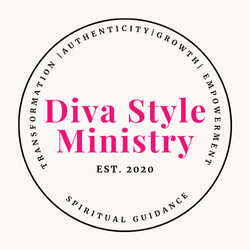A person will worship something, have no doubt about that. We may think our tribute is paid in secret in the dark recesses of our hearts, but it will out.
That which dominates our imaginations and our thoughts will determine our lives, and our character. Therefore, it behooves us to be careful what we worship, for what we are worshipping we are becoming.
Ralph Waldo Emerson
Ralph Waldo Emerson is well-known in literary and religious circles. Born in Boston, Massachusetts in 1803, he influenced poets, writers, and generations of Americans and Europeans.
One of my favorite quotes of Emerson’s is “To be yourself in a world that is constantly trying to make you something else is the greatest accomplishment.”
Being yourself is not something that happens by accident – it’s a combination of factors including your environment, your experiences, and your intentions.
The power of intentions is one that’s discussed often in our modern times and seems to be on a lot of people’s lips. Trying to discern another person’s intentions is challenging – it requires a level of insight and knowledge of another person that isn’t easy to achieve.
Intention isn’t hard to understand, but sometimes to get to the real meaning, you’ve got to take it deeper – really discuss what it means when you set or speak of intention.
What gives intentions power? How do you get the most from them? If you’re not actively setting and using intentions, how do you get started using them, and is there a benefit to doing so?
Think of an intention as a way to set your mood and your direction. You can set an intention for an hour, a day, a week, a month, a year, or a longer period of time in your life. Setting intentions activates your receptivity – the willingness to consider or accept new suggestions and ideas.
I had a conversation on LinkedIn recently around a post from Fran Borg-Wheeler, a former Charity CEO, that stated:
Ignorance is a Strength
I agreed with her and added that being open to new ideas, new ways of doing, and new solutions is a great way to expand your knowledge level and find the people who DO have the right answers at the right time.
Setting an intention to be OPEN to the wisdom of others WILL help you move forward in whatever area of your life you’re focusing on.
If you don’t set an intention before you start on your journey of change, enlightenment, or simply better health, it’s like heading out on a road trip without first checking a map and plotting your course. You can, of course, take off on a trip with only a guess as to where you’d like to go and believe in fate to get you where you want to be, but most people don’t have the courage or the time to live their lives that way.
We imperfectly perfect human beings tend to do better with an intention and a direction for where we want to go. Think of an intention as the route you’re going to take – whether that’s in a car, or simply walking through your life and your career. Instead of letting life “happen” to you – something that could be wonderful for a vacation – you set an intention and put your heart and effort into manifesting it.
If you’re new to setting intentions, start by thinking in terms of body, mind, and spirit. An intention isn’t always tangible – a physical thing you can hold on to – sometimes it’s about internal wealth, like advancing your education, or internal operations, like working up to getting at least 6 hours of sleep on a daily basis.
Now you could set an intention for that physical thing – like a new pair of shoes – because that’s part of the human experience, and its how we live in our modern world. Before setting that intention, however, check in with your body, mind and spirit and focus on what you’re truly seeking instead of just any old thing you want.
You could set a specific intention like making time to do a 30-min aerobic workout 3 times per week, adding 25 minutes of resistance training to your existing workout twice a week, or a more broad-based intention to make time to improve your physical health.
You could set an intention to save for a new car, or to be more regular with maintenance on your existing vehicle to help it last longer.
Specific intentions like creating more calm in your life, having a successful meeting with your boss or supervisor regarding your career, getting a promotion or a new position, etc., can help you to take positive action and make your intention a guiding force.
Once you’ve identified an intention – and I’ll caution you to set just one at a time initially so you don’t divide your focus and energy too much – you’ll want to translate it into a short phrase that you can repeat as an affirmation or mantra. It’s a focus point, and a way to constantly remind you of what you’re setting out to do. Ideally, start your day by repeating your mantra or intention, and use it to plan your actions throughout the day.
If your intention is to move more and get more exercise to improve your heart health, you could use a mid-morning break to walk the stairs at your office or if the weather permits, walk outside for a few minutes.
Put your short and focused intention on the lock screen of your cell phone, so that whenever you pick it up, you’re reminded it. Your intention won’t do you much good if you don’t declare it to the universe. Set it, write it down, create that short, easy to repeat and say statement, and keep repeating it until you achieve it. Once you’ve declared your victory over that intention, set the next one and start again.
You can choose how often you’d like to set intentions but consider doing them monthly. Habit changes are easier to make “stick” if you perform them over 21 to 28 days. If your intention involves changing an existing habit or creating a new one, give yourself the gift of time and focus over 30 days to make progress.
Design your activities so that they support your monthly intention. You could even break down the monthly intention into weekly intentions that you focus on for 7 days and then go to the next step. A “big” goal that feels complicated, when broken down into smaller weekly intentions, can help keep your enthusiasm and motivation high.
An example of a monthly intention could be:
“I will bring space and balance to my schedule to make time for the people who matter to my spirit the most.”
An example of supporting intentions could be:
I am grateful for the time I have and will use it wisely.
I am grateful for the people who support me.
I manage my time efficiently.
I have time for everything important.
I make time for everything important.
Once you’ve set and established an intention for a month, then backed it up with weekly intentions and action, you’ll generate the success that will not only give you the life you want but will also motivate you to reach for new goals and an even better life.
One month will lead to two, and more, and soon you’ll have lived an intentional year – one full of accomplishments and learning, of stretching and growing, and of reinforcing the agency you have over your own life.
Don’t ever give up – keep on taking baby steps forward until you reach that goal.
Ase. Blessed Be. May it ever be so.






